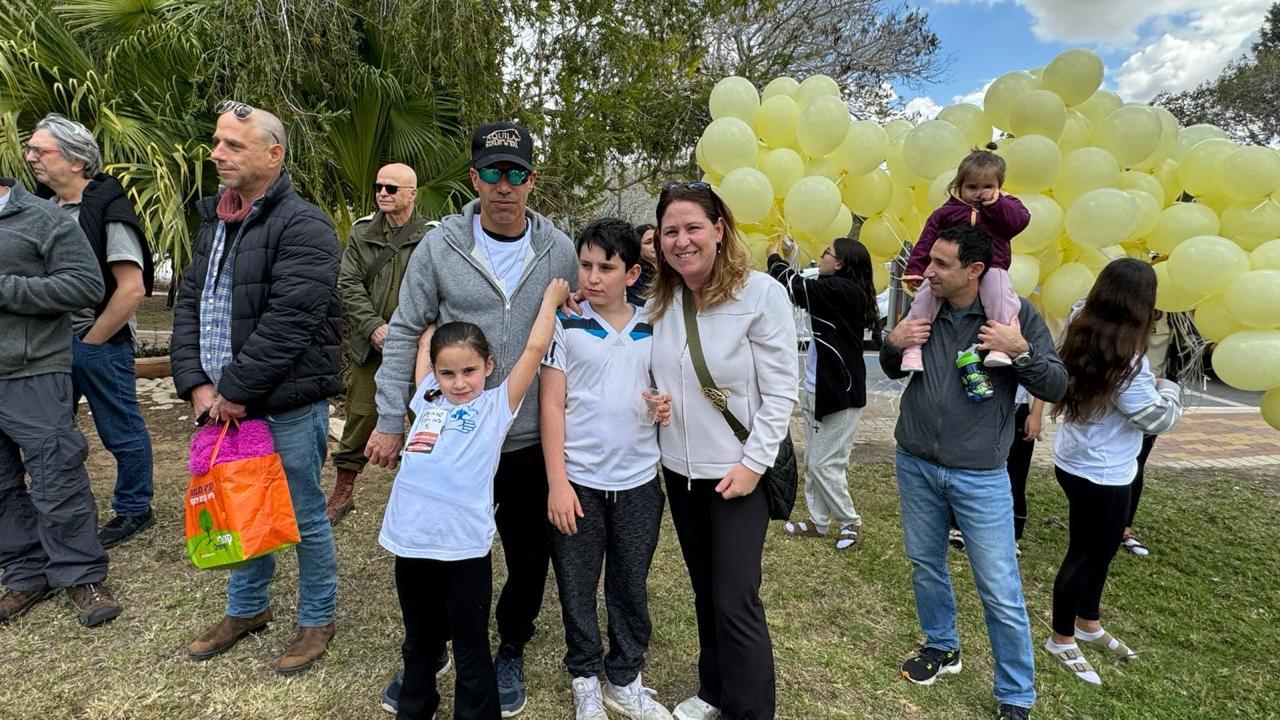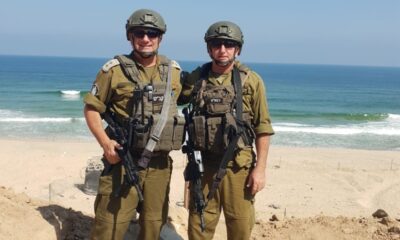
Israel

Nomadic life or insecure existence? Olim weigh options
It has been six months since 7 October, and life for olim evacuated from their homes is far from normal.
There are 104 ex-South African families – roughly 450 olim – whose lives have been profoundly disrupted by evacuation. Displaced and uncertain about the future, many are torn about whether to return to their homes now that the Israeli government has said it’s relatively safe to do so, or to start all over again elsewhere in seemingly safer areas. This while there appears no end in sight to the conflict, and rocket fire and alert sirens remain a reality in many of the areas they fled.
Talya Kuzi, 42, and her husband Shani, 46 from Moshav Sde Nitzan in the Eshkol Regional Council close to Gaza arrived home on 6 October after a two-week family holiday in Cape Town, where her parents were born and raised before making aliya. Upon arrival, they found themselves in their safe room on the moshav with sounds of war all around them, petrified and anxious about the well-being of other family members on kibbutzim nearby.
The day after that, they were forced to flee, evacuated under army protection, leaving behind all they knew and loved.
“We hadn’t even unpacked our suitcases when we fled our home with them and nothing else but our dog and the clothes on our backs,” said Talya.
For four months, they moved around, settling for some time in an hotel in Eilat, where they shared one small room with their son, 10, daughter, 7, and their dog.
“Though it was a beautiful hotel and we considered ourselves fortunate, it wasn’t like we were on vacation. There were scenes of trauma with other evacuees, our lives were severely disrupted, nothing was normal.
“Soon, my husband had to return to work on the moshav where he manages the potato packing shed and sells wine in the area. He’d leave during the week, and return when he could on weekends,” she said. “It was challenging. I found it difficult to work, there was no formal schooling, no kitchen, all the little things made it unsettling,” said Talya.
Her mother, Cynthia Field, who was born and raised in Cape Town, refused to leave the moshav.
“It’s been her home since the 1970s. I understand this because when we considered moving to a new home, I had a breakdown. All I wanted was to return home,” she said.
Last month, her family was one of the first to return, and only a trickle of families followed suit.
“It has been lonely, especially for my son. Many of our friends haven’t returned. At least six young families say they’ll never come back. Many are opting to rent out their homes and wait to see what happens, while their children have registered at new schools.”
She said that the school which served the area overlooked Gaza and hasn’t reopened. A makeshift school has been set up in buildings on a nearby kibbutz, some classes take place in tents or caravans as more children start returning, causing overcrowding. Many teachers haven’t returned. Some are in the army.
Southern Israeli residents evacuated after 7 October have been allowed to return to their homes since 1 March. However, they also have the option of remaining in the hotels, paid for by the government, until 7 July.
An estimated 200 000 Israelis were forced to relocate temporarily. The government provided accommodation at hotels and empty apartments, and offered a daily stipend to those who chose to find alternate accommodation.
As evacuees from the south trickle back, roughly 80 000 people still displaced from northern Israel grapple with rockets, tight living quarters, and dispersed families.
Telfed, which supports South African olim, has offered financial assistance as well as English trauma counselling services and in some cases, rent-free accommodation to evacuees. Dorron Kline, the chief executive of Telfed, said most olim hadn’t returned to their homes, some because there’s nothing left of them, some because they still fear for their safety.
Evacuated families have received financial assistance from Telfed, with a grant of NIS 1000 (R5 128) per person. In addition, families have received gift cards to purchase new clothes and care packages, which include things like hand-crocheted blankets by elderly olim, all of which have been personally delivered by Telfed Chairperson Maish Isaacson. The organisation purchased 40 laptops for displaced families as children resumed remote learning, provided transport for farmers, as well as many other war-relief efforts such as toys and bicycles for children.
Said Isaacson, “The evacuees can be broken up into three different camps: those that say they’ll never go back; those that say they will, but not yet; and those that aren’t sure.”
“Everyone is having trauma therapy,” said Isaacson, who has tried to visit as many evacuees as possible, travelling the length and breadth of the country to connect with them and reassure them that they’re not alone. Isaacson is a former deputy mayor of Ra’anana, volunteers for emergency response organisation Zaka, and is a captain in the police with 30 volunteers under him.
David Michaelowsky from Gqeberha and his wife, Jenny, narrowly escaped the attack on 7 October when they dashed to safety, fleeing their home in Sderot after spending 25 hours cooped up in their safe room. They have spent the past five months relying on the generosity of family and friends for accommodation. What would normally take Michaelowsky 15 minutes to commute to work in Ashkelon is now a four-hour round trip which he does a few times a week, but he says work has kept him sane.
Since the war broke out, they have been back to Sderot only twice to collect some important documents and clothes, and each time found it to be “like a ghost town”
Now that the trains are starting to run and the supermarkets beginning to open, Michaelowsky said he has “mixed emotions” about going back.
“I’m not convinced it’s safe. Every now and then it still comes under rocket attack. It will be like going back to a city that has undergone a huge, unbelievable trauma. It’s not the same place anymore. My wife isn’t ready.”










